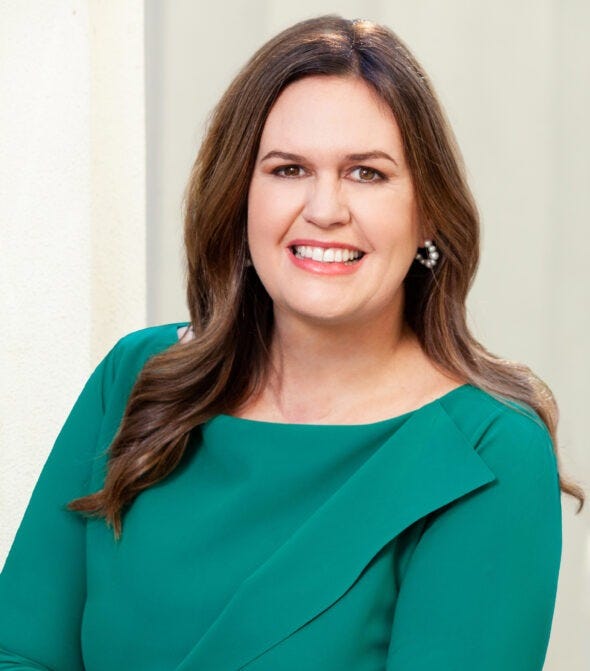Compassion is a better alternative to a government medical welfare program
Arkansas is the last state refusing to expand Medicaid for postpartum women
Arkansas Gov. Sarah Huckabee Sanders is refusing to expand the state’s Medicaid program to cover women 12 months after they give birth. Her decision leaves Arkansas as the only state in the country to refuse to expand the federal-state medical welfare program to give a year’s coverage to postpartum women.
Naturally, she’s taking a lot of heavy fire for that stance, and at some point she and/or Arkansas lawmakers will give in, as is the natural course of things. Government tends to grow, because lawmakers and governors, mayors and city councilmen, eventually, tend to take the easiest road in order to appease one or more interest groups.
In this case, the medical industrial complex — which includes doctors, hospitals, and pharmaceutical companies — wants Medicaid expansion. Left-leaning women’s groups want Medicaid expansion. It wouldn’t be a shocker to see what happened earlier this year in Idaho play out in Arkansas, where pro-life groups demanded expansion, too, arguing that widening Medicaid’s scope of services is a preferable alternative to abortion.
But for now, Huckabee Sanders argues that if Arkansas is to ever get rid of the state’s income tax, it needs to contain the size of government. She also suggests that expansion of the medical welfare program would be duplicative of other programs that are available.
These are commendable arguments for conservative policymakers to take, but she should consider one other point when deciding whether to expand a government program: You can’t outsource compassion.
If people are really concerned about the health of women and their babies, it’s very easy to create a government program to address those immediate concerns. But that does nothing to inform the populus’ views of women and childbirth, or to actively be focused on their outcomes. When government — its agencies, bureaucrats, and politicians — are tasked with caring about something, that something It becomes “someone else’s problem.” It’s no longer the stuff of general public discourse, until the program fails to deliver the promised result and some other government intervention is called for.
If postpartum medical coverage in Arkansas — or any other state for that matter — is of importance, it would be better for people to show their interest and their compassion regarding the matter by acting of their own volition toward that issue. Expanding Medicaid for postpartum women — taxing people in order to pay for the program without even realizing that’s what they’re doing — takes from people away the natural human tendency to want what’s best for women and their babies. Instead, new moms and their kids just fade into the background along with all the other people who are receiving various aid via government programs.
It’s part of human nature to care about others. For much of the course of humanity, this has been the way of things. Our willingness to voluntarily give of our time, attention, and money to a person or a cause has made us all stronger. But in the modern era — at least the last 90 years or so — we’ve outsourced human suffering to politicians, whose programs are designed to do two things: push an issue off the public’s radar and help the politician who votes for the program amass the votes and campaign contributions necessary to get reelected.
Never is the question asked, “if we pass this policy, will people be more or less inclined to care about the people the program serves?” As policy considerations go, this is paramount. The homeless, hungry, the victims of domestic violence — you name it — routinely are erased from the public consciousness as a means toward a political end.
It’s important for the residents of Arkansas and all other states to have compassion regarding the health and wellbeing of postpartum moms and their children. A state can certainly take taxes away from its residents to pay for a program, but it can’t replace their residents’ human compassion — the act of caring — that’s imperative to actually improve the lives of struggling moms and their babies.


